
Hollywood Squares is an American game show in which two contestants compete in a game of tic-tac-toe to win cash and prizes. The show piloted on NBC in 1965 and the regular series debuted in 1966 on the same network. The board for the game is a 3 × 3 vertical stack of open-faced cubes, each occupied by a celebrity seated at a desk and facing the contestants. The stars are asked questions by the host and the contestants judge the truth of their answers to gain squares in the right pattern to win the game.
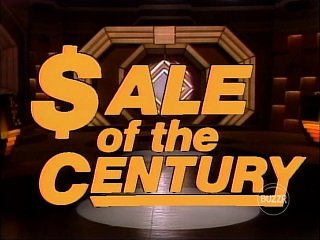
Sale of the Century is an American television game show that originally debuted on September 29, 1969, on NBC daytime. It was one of three NBC game shows to premiere on that date, the other two being the short-lived game shows Letters to Laugh-In and Name Droppers. The series aired until July 13, 1973, and a weekly syndicated series began that fall and ran for one season.
The Joker's Wild is an American television game show that aired at different times between 1972 and 2019. Contestants answer trivia questions based on categories determined randomly by a mechanism resembling a slot machine. The show's title refers to the game's slot-machine mechanism also having jokers, which may be used to represent any category.

Figure It Out is an American children's panel game show that aired on Nickelodeon. The original series, hosted by Summer Sanders, ran for four seasons from July 7, 1997, to December 12, 1999. The show was revived in 2012, with Jeff Sutphen as host, with the revival airing from June 11, 2012, to July 16, 2013. The series was originally recorded at Nickelodeon Studios at Universal Studios in Orlando, Florida. The revival episodes were filmed on stage 19 at Paramount Studios in Los Angeles.
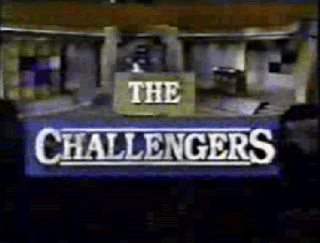
The Challengers is an American game show that aired in syndication during the 1990-91 television season The series was created by Ron Greenberg and was based largely on his 1969 production, The Who, What, or Where Game. Dick Clark presided over the show with Don Morrow announcing. The Challengers was a joint production of Ron Greenberg Productions and Dick Clark Productions, with Buena Vista Television as distributor.

Think Fast is an American children's game show which aired on Nickelodeon from May 1, 1989, to March 30, 1990, with reruns airing weekly until June 29, 1991.

Get the Picture is a children's game show that aired from March 18 to December 6, 1991, with repeats until March 13, 1993 on Nickelodeon. Hosted by Mike O'Malley, the show featured two teams answering questions and playing games for the opportunity to guess a hidden picture on a giant screen made up of 16 smaller screens. The show was recorded at Nickelodeon Studios in Universal Studios, Orlando, Florida. The program's theme music and game music was composed by Dan Vitco and Mark Schultz, and produced by Schultz. Its tagline is The Great Frame Game.

Celebrity Squares is a British comedy game show based on the American comedy game show Hollywood Squares. It first ran on ITV from 20 July 1975 to 7 July 1979 and was hosted by Bob Monkhouse, then—also hosted by Monkhouse—from 8 January 1993 to 3 January 1997.
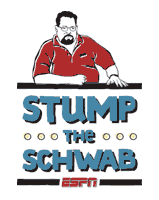
Stump the Schwab is an American game show that aired on ESPN2 and ESPN Classic from July 8, 2004 to September 29, 2006. The show featured three contestants trying to defeat Howie Schwab, ESPN's first statistician, in a sports trivia contest. Stuart Scott was the show's host. The show also appeared on Canada's The Score Television Network.
Trump Card is an American syndicated game show that aired from September 10, 1990, to May 24, 1991, hosted by Jimmy Cefalo. Debi Massey served as hostess and Chuck Riley was the announcer. The show was produced by Telepictures Productions, Createl, Ltd., and Fiedler-Berlin Productions, with Warner Bros. Television distributing. It was based on the British game show Bob's Full House, which consisted of contestants trying to answer questions to fill up a 15-square bingo board.

Tic-Tac-Dough is an American television game show based on the paper-and-pencil game of tic-tac-toe. Contestants answer trivia questions to put up their respective symbol, X or O, on a tic-tac-toe board. Three versions were produced: the initial 1956–59 run on NBC, a 1978–86 run initially on CBS and then in syndication, and a syndicated run in 1990. The show was produced by Barry & Enright Productions. However, the rights to the format are controlled by NBCUniversal.
Fandango is an American television game show. It aired on The Nashville Network from March 8, 1983 to August 26, 1988, with reruns airing through March 31, 1989, when it was replaced by Top Card. Contestants competed to answer trivia questions about country music. The show was hosted by country music singer Bill Anderson, who was joined by Blake Pickett as co-host in 1987. Disc jockey Bill Robinson served as announcer and the voice of the show's setpiece, an oversized jukebox named "Edgar the Talking Jukebox".
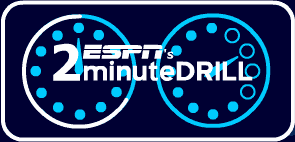
2 Minute Drill is an ESPN game show based on the general knowledge UK game show Mastermind. The program aired from September 11, 2000 to December 28, 2001. ESPN Classic aired reruns of the series daily at 11:30 a.m. Eastern.
Sale of the Century is an Australian prime time game show that aired on the Nine Network from 14 July 1980 to 29 November 2001. It is based on both Great Temptation that aired from 1970 to 1974 and on the original Sale that first aired in the United States from 1969 to 1973. The Australian format of Sale has since been used internationally, including in a revived US version that aired from 1983 to 1989.
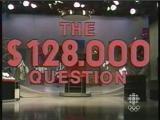
The $128,000 Question is an American game show which aired from 1976 to 1978 in weekly syndication. This revival of The $64,000 Question was produced by Cinelar Associates and distributed by Viacom Enterprises.

Are You Smarter than a 5th Grader? is an American quiz game show. It originally aired on Fox where it was hosted by Jeff Foxworthy. It is produced by Mark Burnett. The show premiered as a three-day special which began on February 27, 2007, with the first two shows each a half-hour in length. Regular one-hour episodes began airing Thursdays from March 1 through May 10, and the first season continued with new episodes beginning May 31. Are You Smarter Than a 5th Grader? was picked up for the 2007–08 season, which began on September 6, 2007, and aired in the same timeslot. Following the end of the original run of the primetime version on September 18, 2009, a first-run syndicated version of the show ran from September 2009 to May 2011, with Foxworthy returning as host. On May 26, 2015, the program returned to Fox for a new, 4th season, with Foxworthy, again, returning as host. On February 14, 2019, it was announced that the program would be revived on Nickelodeon with new host John Cena, airing from June 10 to November 3, 2019. There are new reports that the show may be returning on Amazon Prime Video with new host Travis Kelce.
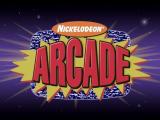
Nick Arcade is an American children's game show created by James Bethea and Karim Miteff and hosted by Phil Moore, with Andrea Lively announcing, that aired on Nickelodeon in 1992. It aired originally during weekend afternoons, with reruns airing until September 28, 1997. In the first season, the shows were taped in December 1991 and aired in early 1992. It was taped at Nickelodeon Studios at Universal Studios Florida in Orlando, Florida. In Nick Arcade, two teams of contestants played two initial trivia rounds, with the winning team advancing to the "Video Zone" to play against the virtual "Video Game Wizard" of the day.
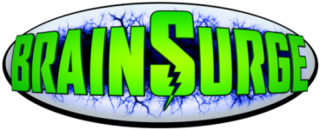
BrainSurge is an American children's game show that aired on Nickelodeon and was hosted by Jeff Sutphen. The show taped its first season in February 2009, and debuted on September 28, 2009. The show's format was adapted from the Japanese game show Brain Survivor. The U.S. version was created by Scott A. Stone, co-creator of Legends of the Hidden Temple, and Clay Newbill, executive producer of The Mole.
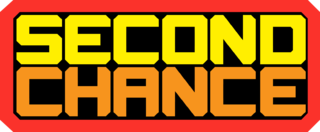
Second Chance is an American game show that ran from March 7 to July 15, 1977, on ABC. Jim Peck hosted, with Jay Stewart and Jack Clark serving as announcers. The show was a production of the Carruthers Company in association with Warner Bros. Television.

Cash Trapped is a British game show which aired on ITV from 1 August 2016 to 20 December 2019. Presented and based on an idea by Bradley Walsh, the show pits contestants against one another in a contest to amass and win prize money by answering questions in various categories.
















